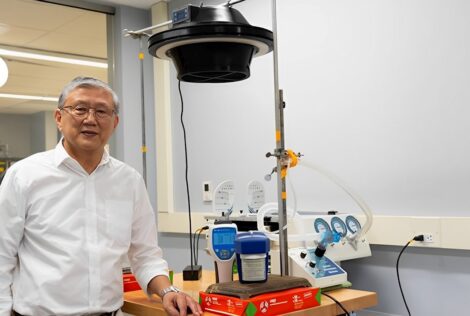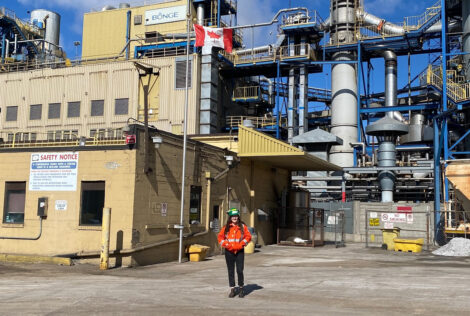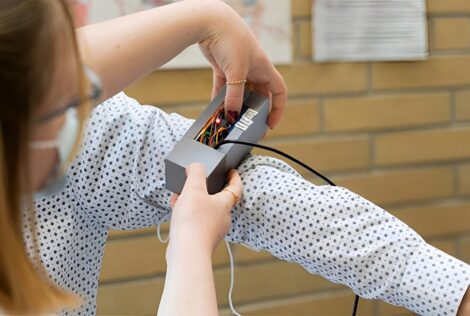
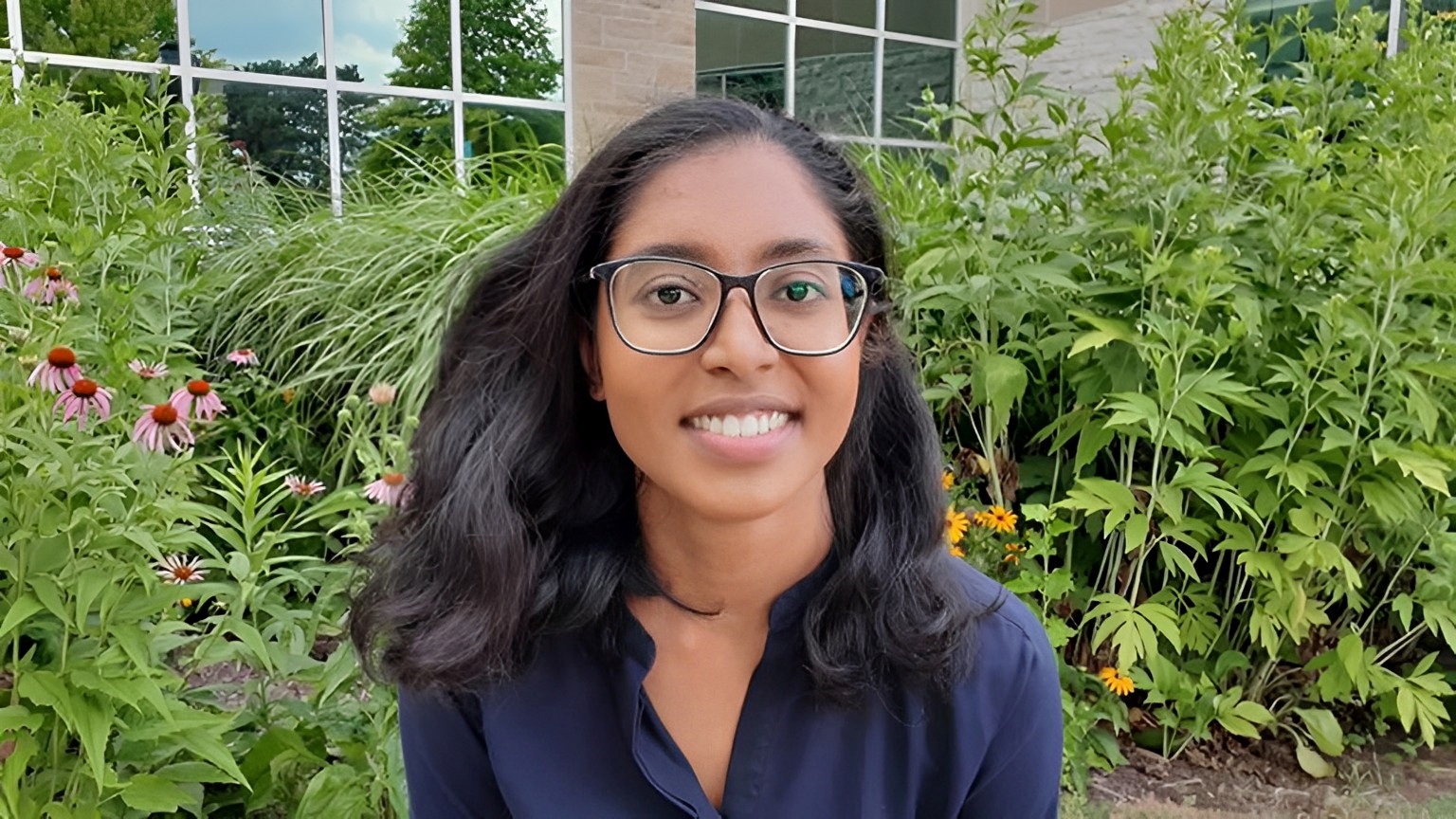
For Mathura Thirugnanasampanthar, there’s nothing like the thrill of coming into the lab the day after an experiment
Even failing to get expected results, she said, gives a rewarding opportunity to troubleshoot her way to finding a solution.
“There is always a sense of excitement, anticipation, and dread right before I open the incubator,” she said.
The student, who starts her PhD in chemical engineering in 2022, was the winner of the Pat Burnell Young Investigator Award at the Drug Delivery to the Lungs (DDL) conference in December, which focuses on respiratory and nasal drug delivery.
Thirugnanasampanthar was selected from a large pool of candidates to present her high-quality research. Using a custom-built aerosol sampling device, she explored how the influence of airway mucus composition affects the generation of infectious aerosols.
Her research helps lead to a better understanding of how airborne diseases are transmitted.
The award, she said, left her surprised and filled with gratitude for the accolades.
I really enjoy the work I do, and I consider it an absolute privilege to be able to come into the lab every day and do what I love. Being recognized and rewarded for this work is something I am very grateful for, especially because it made my parents very happy. I am also very happy to have been given the opportunity to represent McMaster, and especially our aerosol research, at an international conference!
In her conference presentation, Thirugnanasampanthar explained that biological aerosols can be generated from the breakup of the airway mucus lining as we breathe, talk, cough or sneeze. Disorders like cystic fibrosis and asthma impact the surface properties of that mucus.
Supervised by Zeinab Hosseinidoust and co-advisor Myrna Dolovich (St. Joseph’s Firestone Institute), Thirugnanasampanthar used the sampling device to generate bacterial aerosols from solutions that mimicked the concentration of airway mucus in health and disease.
The results showed that bacterial aerosols generated from solutions with a higher concentration of salts and proteins are larger in size and will settle to the ground very quickly.
While such research is usually performed with inert particles, like sodium chloride particles or latex beads, Thirugnanasampanthar notes that this system is designed to accommodate bioaerosols – i.e., aerosol particles containing bacteria or viruses.
“Understanding the influence of biological variables on bacterial and viral aerosol properties will allow us to conduct filtration testing of personal protective equipment such as masks and respirators under physiologically relevant conditions.”
The Pat Burnell Young Investigator Award is given to someone who not only presents the best aerosol science research, but also does so with clarity. Thirugnanasampanthar pointed to Hosseinidoust as having shared key advice for her success:
“The best presentations are the ones that people can understand.”
This work started as a project supported by the office of Associate Dean Research and flourished into a full-research platform, funded by the CIHR COVID-19 grant received by Hosseinidoust (Establishing A Research Platform for Investigating and Optimizing PPE Filtration/Barrier Efficiencies Against Aerosolized Bacteria and Viruses in Clinical Healthcare Settings).
Thirugnanasampanthar virtually accepted the award, complete with a festive cake in hand, and will be invited to join the judging panel for next year’s Pat Burnell Young Investigator Award.
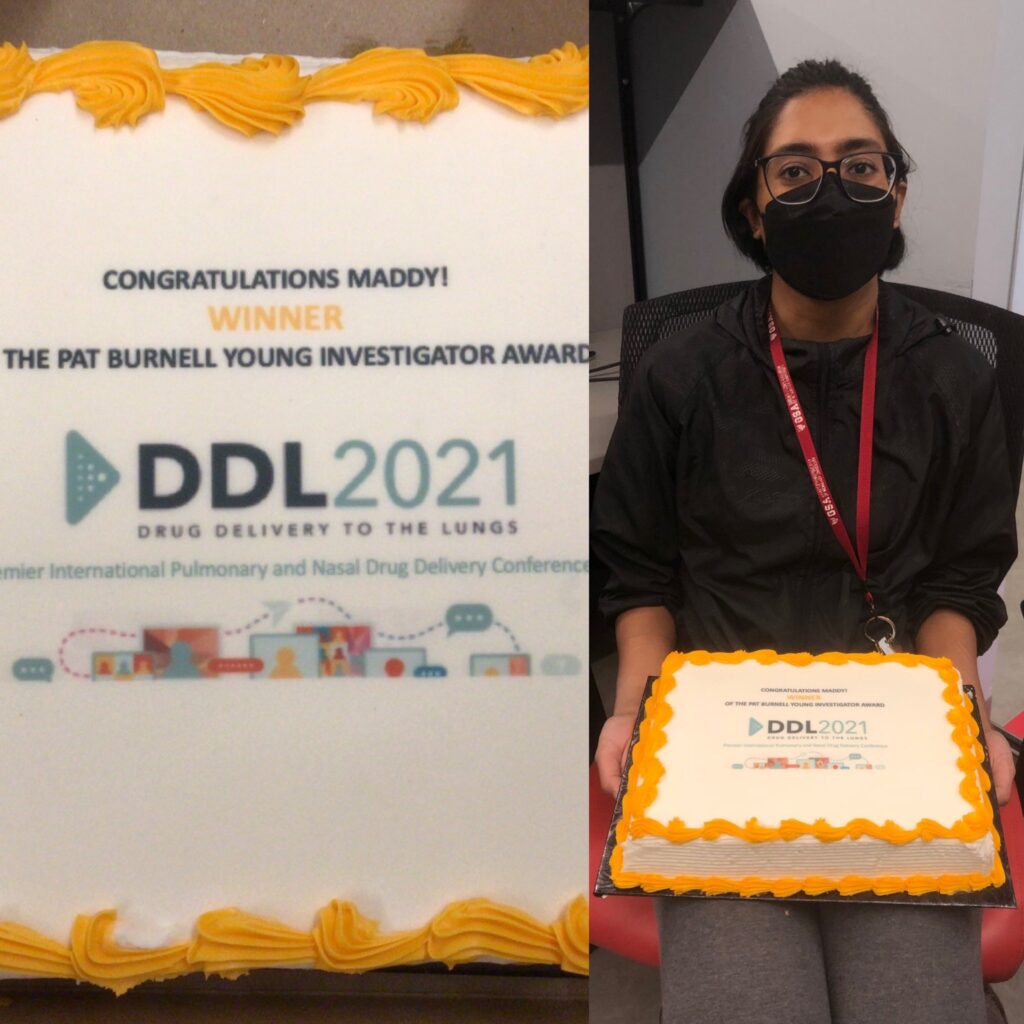
She gave thanks to an incredible team, including technician Rod Rhem, as well as to those behind the mechanical engineering and chemical engineering shops, and for opportunities to consult with Dr. Alison Robichaud. Further collaborators on the CIHR grant include the Canadian Standards Association, Hamilton Health Sciences, and St. Joseph’s Healthcare Hamilton.

